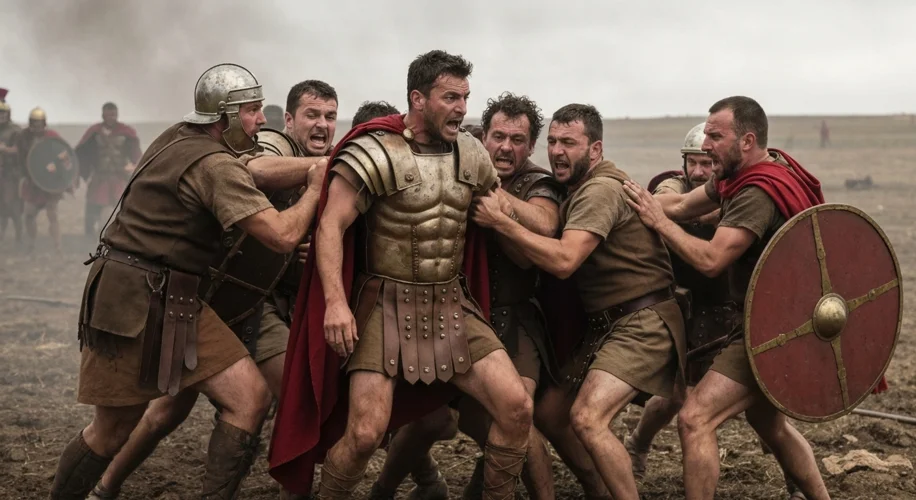The air in the ancient world often hung thick with the dust of battle, the cries of the wounded, and the distant, echoing pronouncements of commanders. Yet, beneath the veneer of military discipline, a more chilling drama could unfold: the ultimate act of insubordination, where soldiers, driven to desperation by incompetent or cruel leadership, turned their weapons upon their own superiors.
This was not mere mutiny in the traditional sense of a broad revolt against the established order. This was a targeted, often brutal, assassination born from a soldier’s raw assessment of a leader’s worth – or lack thereof. It was a desperate, final plea against what they perceived as a fatal mismanagement of lives.
Consider the Roman legions, the very backbone of an empire. While discipline was paramount, history offers glimpses of a darker reality. In 46 BC, during the tumultuous civil wars, Caesar’s own legions, weary of relentless campaigns and what they saw as his increasingly reckless ambition, turned on one of his legates, a man named Titus Labienus. Labienus, a seasoned commander himself, had been appointed by Caesar but had grown increasingly disillusioned. The specific grievances are lost to the fog of time, but the outcome was stark: Labienus was killed by his own men.

This wasn’t an isolated incident, nor was it confined to the classical world. The motivations were often rooted in a profound sense of betrayal. Soldiers, willing to face death for their cause, could not stomach leaders who squandered their lives through vanity, poor planning, or sheer incompetence. They were the ones in the trenches, enduring the hunger, the cold, the fear. When a leader, insulated by rank and privilege, made decisions that led to unnecessary slaughter, the bond of loyalty could snap with violent finality.
During the Thirty Years’ War (1618-1648), a period of brutal religious and political conflict that ravaged Europe, such desperation was rife. Armies were often poorly supplied, and commanders, many of whom were mercenary captains driven by profit rather than principle, could be particularly callous. While documented cases of direct assassinations of superiors by their own troops are rare due to the inherent risks, the underlying sentiment of resentment and potential for violence was pervasive. Accounts from the era speak of soldiers abandoning their posts or actively undermining their officers when their grievances reached a boiling point.
Perhaps one of the most stark examples, though not a direct killing, can be seen in the aftermath of the Battle of Mohács in 1526. The Hungarian army, led by King Louis II, was decisively defeated by the Ottoman Turks. The king himself drowned while trying to escape. While the precise circumstances of his death are debated, some contemporary accounts and later interpretations hinted at the disarray and panic that gripped the Hungarian leadership. The soldiers, witnessing the catastrophic failure of their commanders and the king’s own ignominious end, were left to face the brutal reality of defeat. The psychological impact on the surviving soldiery, left leaderless and devastated, would have been immense, fostering a deep distrust of the nobility that had led them to ruin.
These acts, however extreme, raise profound ethical questions. When does a soldier’s duty to their commander end, and their duty to their own survival, or the preservation of their comrades’ lives, begin? The military ethos typically emphasizes absolute obedience, yet history shows that human nature, in the face of extreme suffering and perceived injustice, can defy even the most rigid structures.
From the soldier’s perspective, such an act was not necessarily treason, but a desperate measure, a last resort. It was a brutal affirmation that the lives of those on the front lines held value, a value that their leaders had seemingly forgotten. It was the ultimate expression of disillusionment, a dark testament to the fragile contract between those who command and those who obey, a contract that, when broken, could lead to the most dire of consequences.
The historical record is often silent on the granular details of these grim moments, obscured by official narratives that sought to maintain the sanctity of command. Yet, in the whispers of history, we find these instances where the soldier’s loyalty, pushed beyond its breaking point, led not to a triumphant charge, but to the cold, quiet finality of a dagger in the back of their own general.

